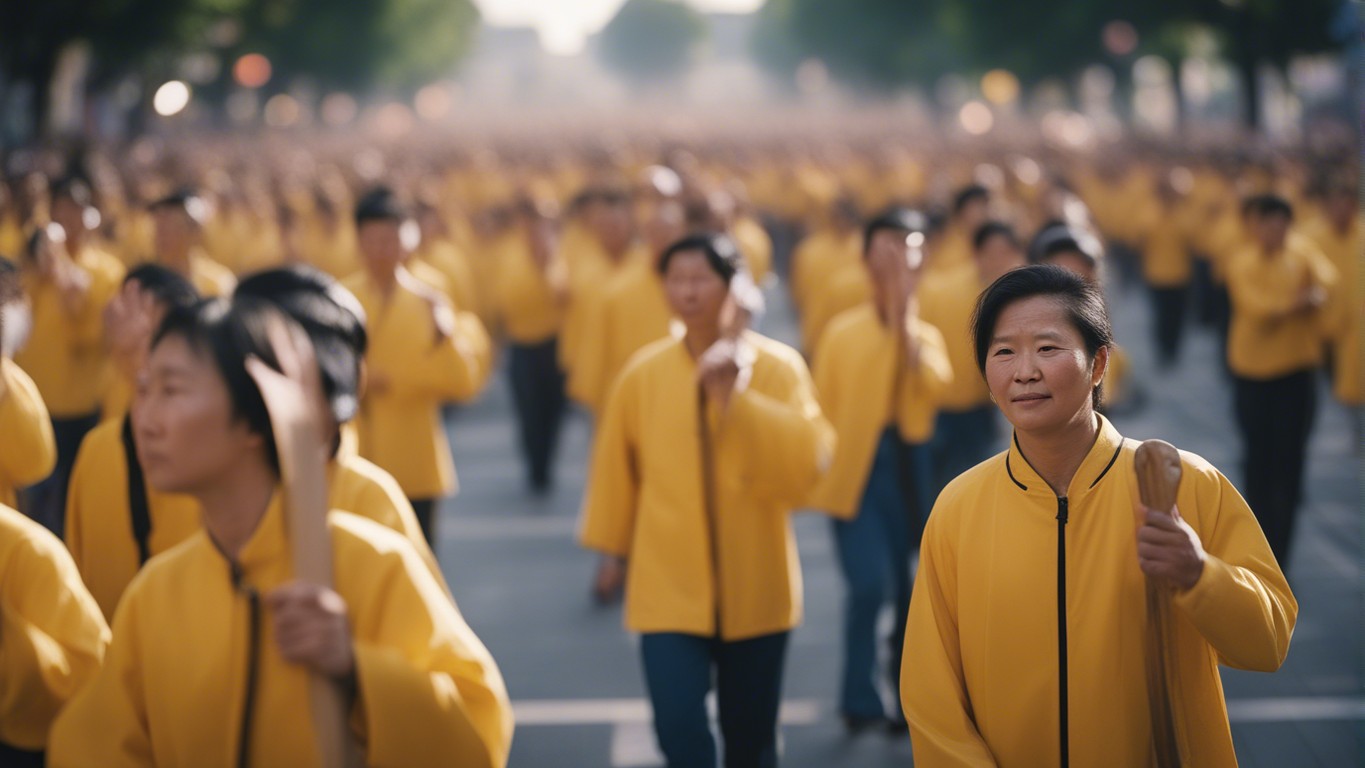Falun Gong has elicited strong reactions globally. On one hand, the Chinese government categorizes it as a ‘heretical organization’ involved in anti-state activities. On the other hand, human rights organizations and Western governments denounce China’s crackdown as religious persecution. Let’s dissect this complex issue to understand the shades of gray that characterize the Falun Gong phenomenon.
Emergence and Beliefs
Early Years and Rapid Growth
Li Hongzhi founded Falun Gong in China in 1992. Within seven years, the movement reportedly amassed between 2 to 3 million adherents. The exponential growth alarmed the Chinese government, which was wary of any large, organized group outside of state control.
Core Beliefs and Practices
Falun Gong combines qigong, a traditional Chinese exercise regime, with philosophical elements from Buddhism and Taoism. Its key tenets are “Truthfulness, Compassion, and Forbearance.” Alongside these moral principles, Falun Gong exercises involve meditative movements, which practitioners believe help in spiritual elevation. Detractors claim that Li Hongzhi, the founder, has made unverified claims about his own supernatural abilities, fueling criticisms about cult-like behavior.
Timeline of Criminalization
1999: Year of the Crackdown
- April 25: A peaceful protest involving approximately 10,000 Falun Gong practitioners took place outside the Zhongnanhai government compound in Beijing. The Chinese government perceived it as a siege.
- July 20: The government officially outlawed Falun Gong and launched a severe crackdown. Police arrested thousands, and state media ran anti-Falun Gong propaganda.
2001: Media Manipulation and Tiananmen Square
- January 23: A shocking self-immolation incident took place at Tiananmen Square. Five individuals set themselves on fire; the government blamed Falun Gong. However, The Washington Post and other media outlets challenged the state narrative, speculating that the incident could be staged.
2006-2009: Forced Labor and Organ Harvesting Claims
- In-depth investigative reports emerged, most notably by human rights lawyer David Matas and former Canadian Secretary of State David Kilgour. Their findings implicated Chinese authorities in the alleged forced organ harvesting from Falun Gong practitioners in detention centers.
Global Response
United Nations and Human Rights Watch
The UN has expressed its concerns multiple times, especially the Committee Against Torture. It specifically mentioned the numerous allegations of torture against Falun Gong members. Human Rights Watch has also consistently decried the mistreatment.
International Advocacy and Legislative Measures
The U.S. Congress has passed multiple resolutions condemning the Chinese government’s treatment of Falun Gong. Notable legislation includes House Resolution 343, urging China to stop the organ harvesting of Falun Gong prisoners of conscience.
Ongoing Controversies
Shen Yun and Financial Operations
Shen Yun, the New York-based performing arts company, is reported to have deep connections with Falun Gong. It generates millions in revenue and is viewed as an extension of Falun Gong’s global outreach.
Academic Debates
Several academics have scrutinized Falun Gong. Benjamin Penny, an Australian researcher, for instance, raises questions about Falun Gong’s political versus religious identity. Maria Hsia Chang, in her book ‘Falun Gong: The End of Days,’ discusses the eschatological elements within Falun Gong beliefs.
The debate surrounding Falun Gong is fraught with geopolitical, religious, and ethical complexities. Its massive following and the Chinese government’s relentless persecution make it a compelling yet contentious subject. In the words of BBC journalist John Simpson, “Falun Gong remains an enigma, a mirror reflecting our biases and preconceptions, a phenomenon that defies easy categorization.”
